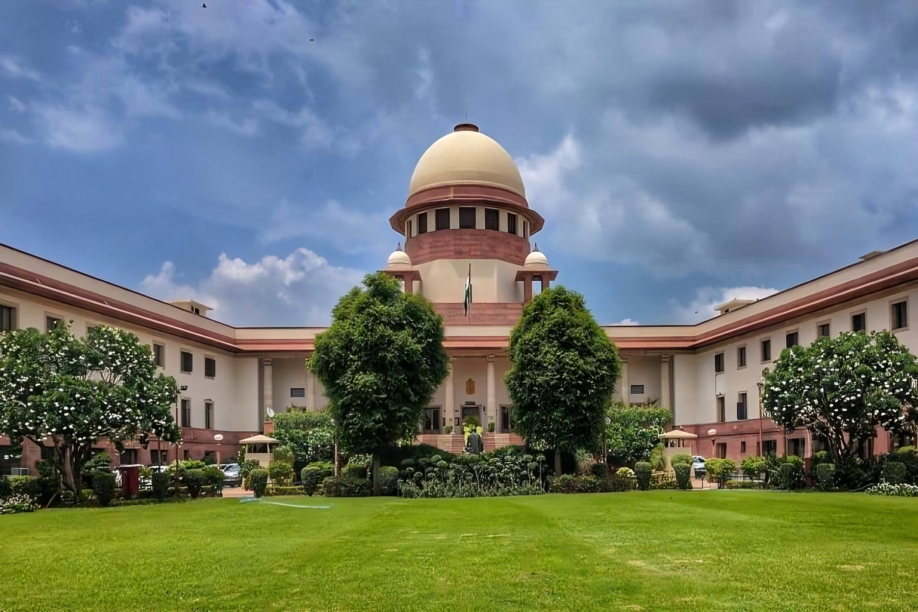India’s Supreme Court Balances Environmental Conservation with Renewable Energy Goals

Image Source: Asia News Network
In a landmark decision, the Supreme Court of India has highlighted the problematic relationship between climate exchange and constitutional rights, emphasising the urgency of balancing conservation efforts with the development of renewable electricity infrastructure. This sensitive balancing act revolves around the conservation of the severely endangered Great Indian Bustard (GIB) and the development of renewable strength resources in Rajasthan and Gujarat, which are pivotal to India’s green electricity aspirations.
The bench, led by Chief Justice D.Y. Chandrachud, articulated a nuanced knowledge of how weather exchange may want to infringe upon the constitutional guarantee of the right to equality. Without a stable and clean environment, fundamental rights, including the right to lifestyle and health, continue to be unfulfilled. The bench underscored the detrimental influences of air pollution, vector-borne illnesses, extreme temperatures, and meal shortages because of weather trade, illustrating a comprehensive view of the environmental disaster.
In a groundbreaking move, the Supreme Court of India has highlighted the urgent need to address the conflict between renewable energy infrastructure and wildlife conservation, specifically focusing on the plight of the critically endangered Great Indian Bustard (GIB) in Rajasthan and Gujarat. The bird’s unique physiology, with eyes on the sides of its head, makes it particularly susceptible to fatal collisions with overhead power lines, a byproduct of the region’s push for solar and wind energy. In response, the Court has assembled an expert committee from various fields, including the Wildlife Institute of India and the ministries of New and Renewable Energy, Environment, Forests, and Climate Change. This committee is tasked with finding a balanced solution that both protects the GIB and supports India’s renewable energy objectives, signifying a significant step towards harmonizing environmental conservation with sustainable development.
The court’s decision underscores the intrinsic link between environmental sustainability and the safety of essential rights. By prioritising easy-strength projects consisting of solar energy, India now not only adheres to its worldwide duties but also ensures the health of its residents. The judgement acknowledges solar electricity as a key to the global transition closer to cleanser-strength assets, highlighting India’s strategic position inside the renewable energy zone as the world’s fourth-biggest installer of renewables. The Supreme Court’s directive requires a re-evaluation of previous orders mandating the undergrounding of power traces, thinking about the realistic and demanding situations and capability environmental influences of such measures. Instead, a more nuanced technique, together with the use of fowl diverters and the evaluation of electricity line routing, is advocated to ensure the lengthy-term conservation of the GIB without hindering India’s renewable power desires.
This landmark judgement now not only most effectively addresses the instantaneous issues surrounding the conservation of a seriously endangered species and the development of renewable energy, but additionally sets a precedent for future felony and coverage frameworks. It emphasises the need for a holistic approach to environmental conservation, one that harmonises the renovation of biodiversity with the imperatives of sustainable development and weather alternate mitigation.
In essence, the Supreme Court of India’s ruling encapsulates an ahead-wondering perspective on environmental justice, renewable energy, and the safeguarding of constitutional rights against the backdrop of weather trade. It reinforces the concept that environmental sustainability and the protection of endangered species aren’t at odds with improvement but are, in reality, integral to realising a just, equitable, and sustainable destiny.
Team Profile

- Content Editor
- Yangchula Bhutia is a budding journalist currently pursuing her Master's degree in Journalism at Jadavpur University. Her passion lies in environmental issues, and she aspires to make a difference through impactful storytelling focused on environmental challenges and solutions.
Latest entries
 English7 September 2024India Leads Global Plastic Waste Production, Generating 10.2 Million Tonnes Annually: Study Finds
English7 September 2024India Leads Global Plastic Waste Production, Generating 10.2 Million Tonnes Annually: Study Finds English19 August 2024Indian Student at UCL Develops Carbon-Capturing Construction Material
English19 August 2024Indian Student at UCL Develops Carbon-Capturing Construction Material English17 August 2024Delhi’s Indira Gandhi International Airport Achieves Net Zero Carbon Emission Status
English17 August 2024Delhi’s Indira Gandhi International Airport Achieves Net Zero Carbon Emission Status English30 July 2024WhatsApp Enhances Message Reactions with New Double-Tap Heart Emoji Feature
English30 July 2024WhatsApp Enhances Message Reactions with New Double-Tap Heart Emoji Feature









